E-bikes have motor-assisted pedalling. This reduces your physical effort and helps make your everyday journeys easier, more efficient, and more fun over greater distances at a quicker speed.
E-bikes are kinder to your wallet, the planet, and your overall wellbeing than an over-reliance on cars. Advances in e-bike technology are opening up e-bikes to more and more people for even more enjoyable and accessible journeys. From cycling clubs to school runs, e-bikes are becoming an increasing part of everyday life.
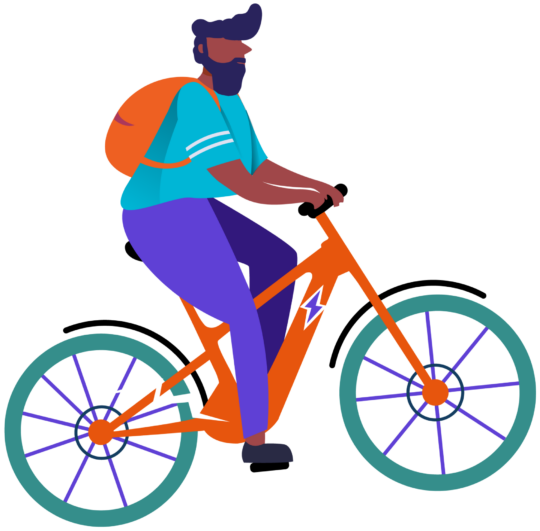
Further, quicker, easier
E-bikes are transforming how we all enjoy cycling. Built-in electric pedalling does the hard work for you – particularly helpful for older riders and those with health conditions or physical challenges. They also offer a reassuring boost for beginners or riders who need a confidence boost. E-bikes allow you to maintain a good pace, navigate city streets, roam rural hills, and cover many more miles. No sweat!

Feeling fitter
E-bikes are a great way to up your fitness levels in a low impact way. The pedal-assist feature allows many people to improve their health: people recovering from injury, older individuals, those with physical limitations or just someone new to regular exercise. Your fitness gains without the strains on your joints and muscles.
E-bikes are also good for your mental wellbeing. Their lower physical demand encourages you to go out and about more regularly on your bike, lowering your stress levels and lifting your mood.
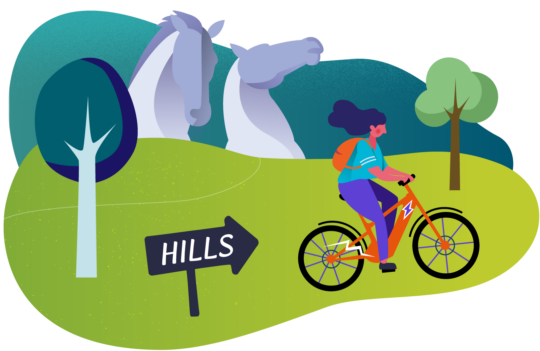
Environmentally friendly
There are many environmental benefits with e-bikes. As they convert more grid energy into motion with lower emissions, they are much more energy efficient than cars. Particularly in urban areas, e-bikes can help to reduce air pollution and lower your overall carbon footprint.
Their manufacturing and maintenance also have a much smaller environmental impact compared to cars. E-bikes need fewer raw materials, have simpler processes, and often include recyclable components. Their projected lifespan also helps reduce traffic congestion over time and the demand for parking spaces, contributing to a more sustainable urban infrastructure.
The active and eco-friendly lifestyle associated with e-bikes encourages a shift away from cars for short trips. Widespread e-bike adoption can play a role in creating more sustainable and liveable cities, while supporting national net zero commitments.
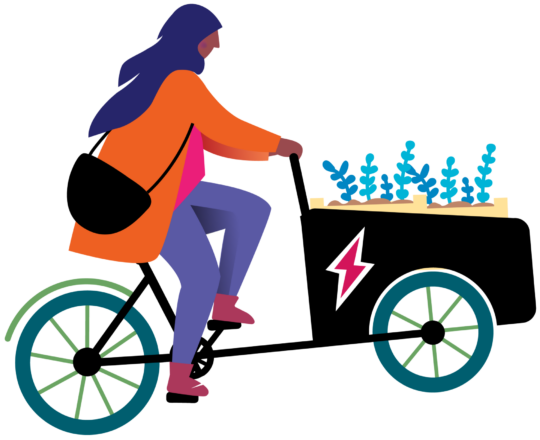
Pocket friendly
Choosing an e-bike for short journeys is kinder to your bank balance as well as the environment. As initial costs are much lower than for a car, e-bikes make a more accessible option. What’s more, they need less maintenance, cost less to charge up than a car, and save substantially on fees and space for parking, which is often free for bikes.
If cost is a barrier to you buying and maintaining an e-bike, support and help are available. Initiatives, such as the cycle-to-work scheme, can offer e-bikes at a reduced price. Community organisations, like the hubs supported by Do The Ride Thing, also provide assistance and advice for e-bike purchases and maintenance.
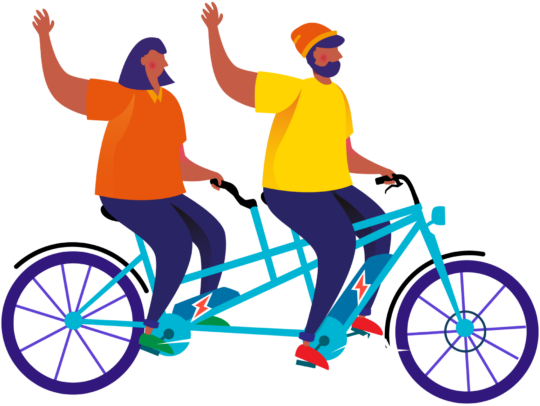
Socially active
Being out and about on an e-bike is much more of a community experience than being stuck in a car. You engage more with your surroundings and meet people face to face on your travels. Your daily commute by e-bike can be a more social event riding alongside colleagues and friends.
E-bikes also open up an enjoyable and active way to explore the outdoors with others. From scenic trails to countryside adventures, e-bikes help create these shared experiences which strengthen social bonds and create memories that last.
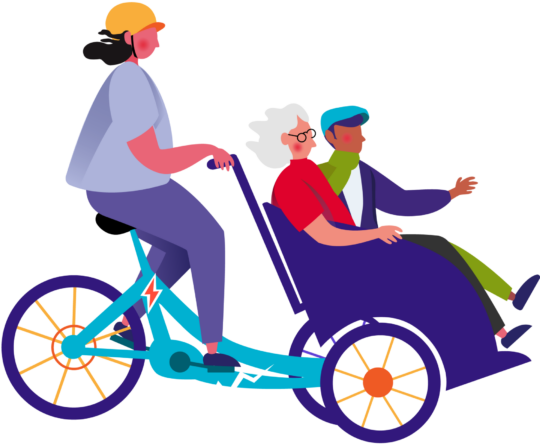
Accessible technology
E-bike technology is constantly advancing to improve performance. Lithium-ion batteries pack more energy into a lighter, more efficient package. The popularity of e-bikes has also reduced production costs through economies of scale.
Recent developments have focused on accommodating disabled riders and a wider range of physical abilities so that everyone can be part of the e-bike cycling community.

